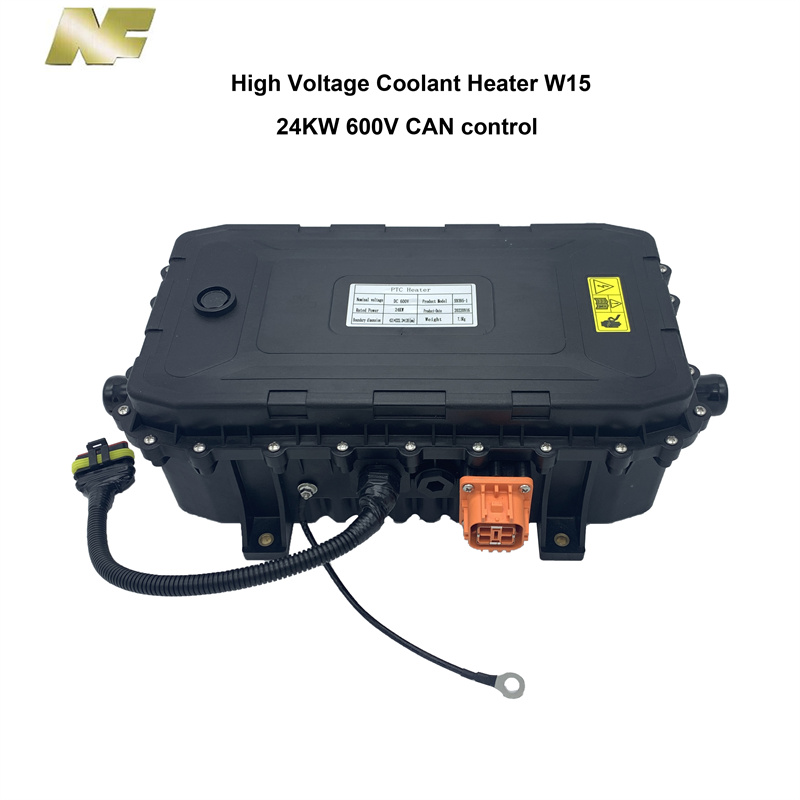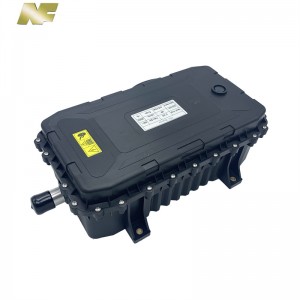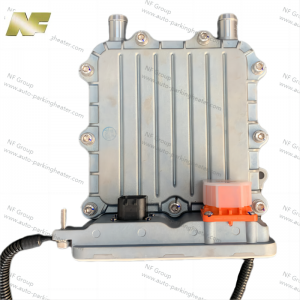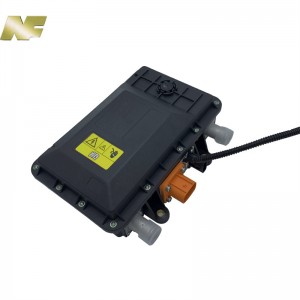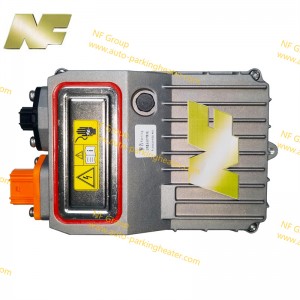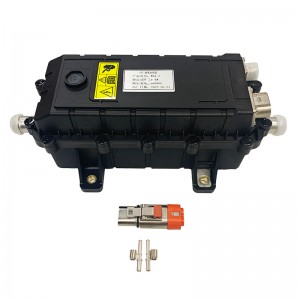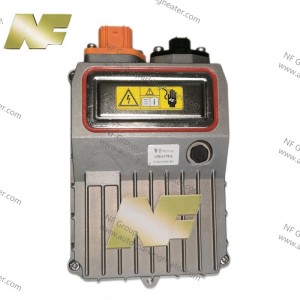24KW Electric Heater DC600V HVH Heater DC24V For Mini Electric Bus Cab Heat
Description
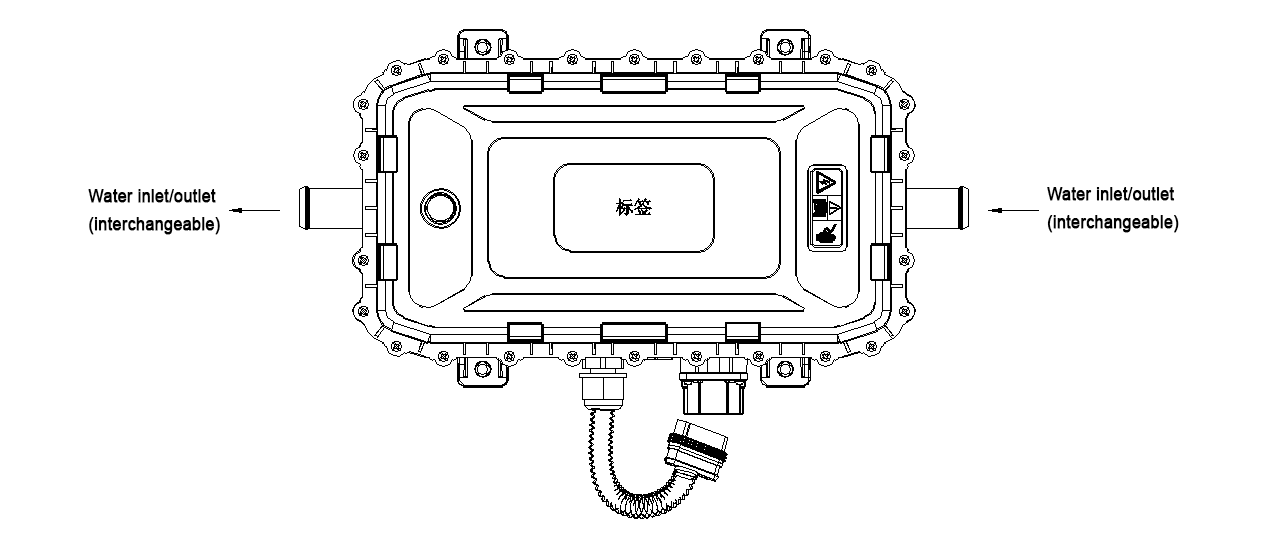
In modern automotive technology, the integration of high-voltage systems is becoming more and more common. High voltage Coolant heaters (HVCH) are an important component in these systems. These advanced heating solutions play a key role in ensuring efficient and reliable operation of various automotive systems, especially electric and hybrid vehicles. In this blog, we will discuss the importance of high-voltage heaters in automotive applications, focusing on their features, benefits, and impact on vehicle performance.
HVHs, also known as high-voltage coolant heaters, are designed to provide supplemental heating to electric and hybrid vehicle systems that rely on high-voltage power sources. Unlike traditional car heaters, which use the car's internal combustion engine to generate heat, HVHs are powered by a high-voltage battery pack, making them an essential component of electric vehicles. These heaters are responsible for heating the vehicle's coolant, thereby helping to maintain optimal operating temperatures for various vehicle systems, including the battery, power electronics and cabin heating.
One of the primary functions of HVH is to ensure that the vehicle's high-voltage battery is operating within an optimal temperature range. Batteries perform best when they are maintained at a consistent and moderate temperature, and HVH plays a vital role in achieving this thermal balance. By proactively managing the temperature of the battery pack, HVH helps improve the overall efficiency, performance and longevity of the battery, ultimately increasing the range and longevity of electric and hybrid vehicles.
In addition to battery management, high-voltage heaters also play a key role in regulating the temperature of power electronics in electric and hybrid vehicles. These complex electronic components control the flow of electricity in the vehicle and are highly sensitive to temperature fluctuations. HVH helps maintain stable operating temperatures of power electronic equipment, ensuring its reliability and extending its service life.
In addition, the HV coolant heater improves overall vehicle occupant comfort and safety by providing efficient cabin heating. In cold climates, HVH is critical to quickly heating the vehicle interior to provide a comfortable and welcoming environment for passengers. By utilizing a high-voltage power source, these heaters can quickly increase cabin temperature without relying on the vehicle's internal combustion engine, making them an essential feature in electric and hybrid vehicles.
Integrating high-voltage heaters in automotive applications not only benefits vehicle performance, but also the environment. Electric and hybrid vehicles equipped with HVH are more energy efficient because these heaters minimize consumption of the high-voltage battery pack by effectively managing the vehicle's heat needs. This in turn improves energy efficiency and extends driving range, making electric vehicles a more sustainable transportation option.
Additionally, using high-voltage heaters in automotive applications contributes to reduced emissions and a greener environmental footprint. By enabling electric and hybrid vehicles to operate more efficiently in cold weather conditions, HVH can contribute to the widespread adoption of alternative fuel vehicles, thereby helping to reduce the environmental impact of transportation. As the automotive industry continues to shift toward electrification, the importance of high-voltage heaters in advancing sustainable transportation solutions cannot be overstated.
In summary, the integration of high-voltage heaters in automotive applications, especially in electric and hybrid vehicles, plays a key role in ensuring efficient and reliable vehicle operation. From managing the temperature of the high-voltage battery pack and power electronics to providing comfortable cabin heating, HVH is critical to optimizing vehicle performance and enhancing the overall driving experience. As the automotive industry continues to move toward electrification, the importance of high-voltage heaters will only continue to grow, cementing its position as a cornerstone of modern automotive technology.
Technical Parameter
| Parameter | Description | Condition | Minimum value | Rated value | Maximum value | Unit |
| Pn el. | Power | Nominal working condition:
Un = 600 V Tcoolant In= 40 °C Qcoolant = 40 L/min Coolant=50:50 |
21600 | 24000 | 26400 | W |
| m | Weight | Net weight (no coolant) | 7000 | 7500 | 8000 | g |
| Toperating | Work temperature (environment) | -40 | 110 | °C | ||
| Tstorage | Storage temperature (environment) | -40 | 120 | °C | ||
| Tcoolant | Coolant temperature | -40 | 85 | °C | ||
| UKl15/Kl30 | Power supply voltage | 16 | 24 | 32 | V | |
| UHV+/HV- | Power supply voltage | Unrestricted power | 400 | 600 | 750 | V |
Product Size
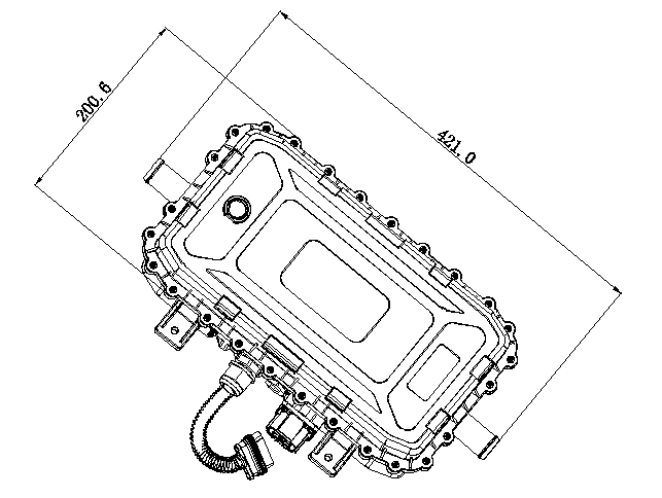
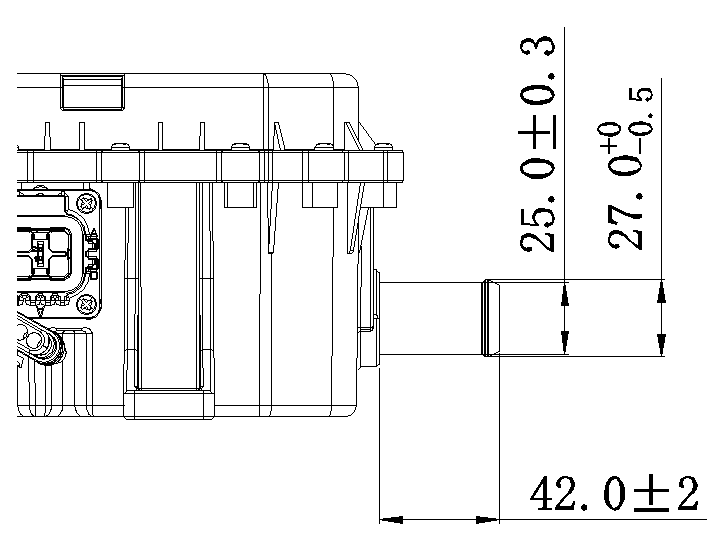
Advantage
1. Life cycle of 8 years or 200,000 kilometers;
2. The accumulated heating time in the life cycle can reach up to 8000 hours;
3. In the power-on state, the working time of the heater can reach up to 10,000 hours (Communication is the working state);
4. Up to 50,000 power cycles;
5. The heater can be connected to constant electricity at low voltage during the whole life cycle. (Usually ,when the battery is not depleted; the heater will go into sleep mode after the car is turned off);
6. Provide high-voltage power to the heater when starting the vehicle heating mode;
7. The heater can be arranged in the engine room, but it cannot be placed within 75mm of the parts that continuously generate heat and the temperature exceeds 120℃.
Application


CE certificate
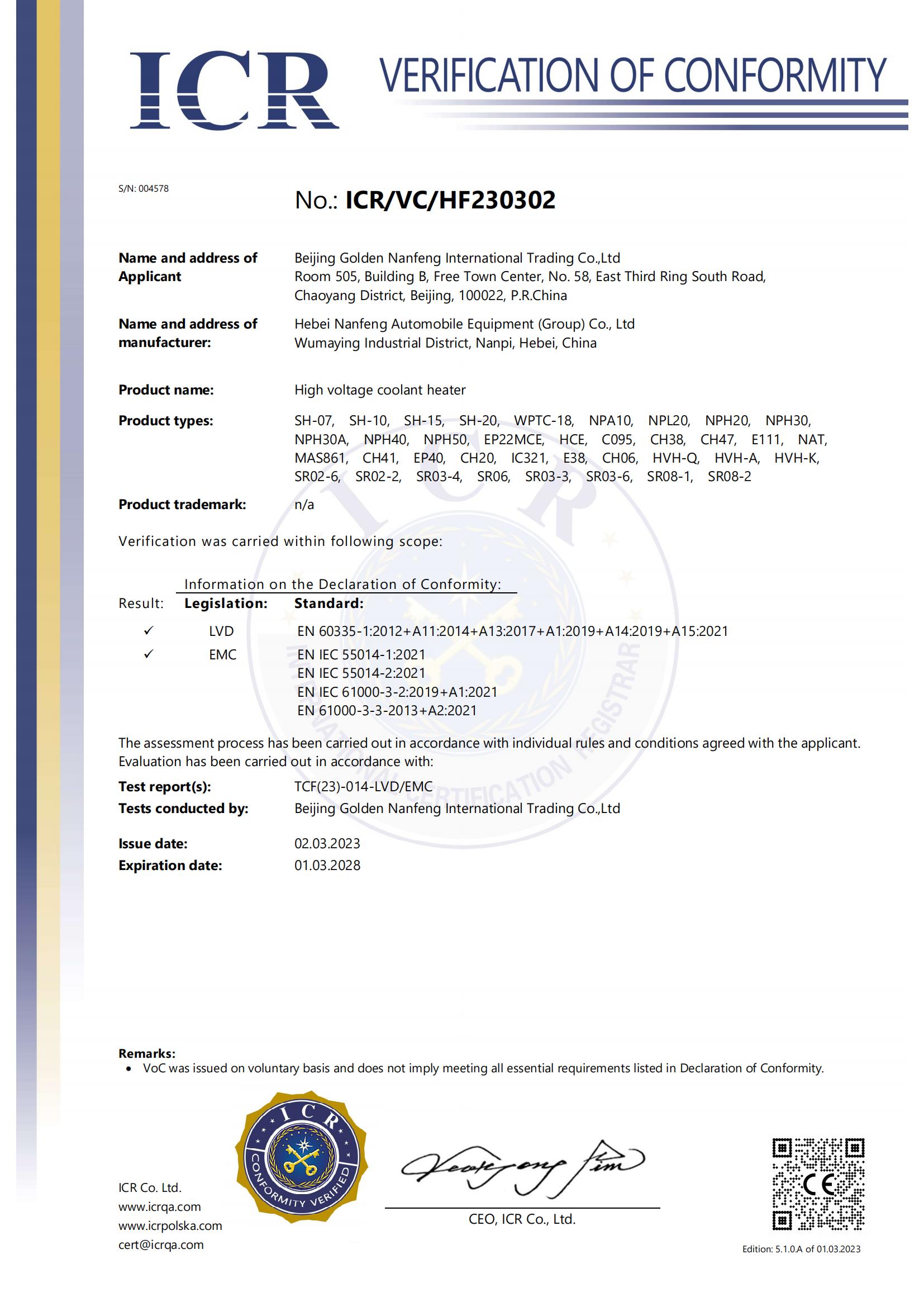
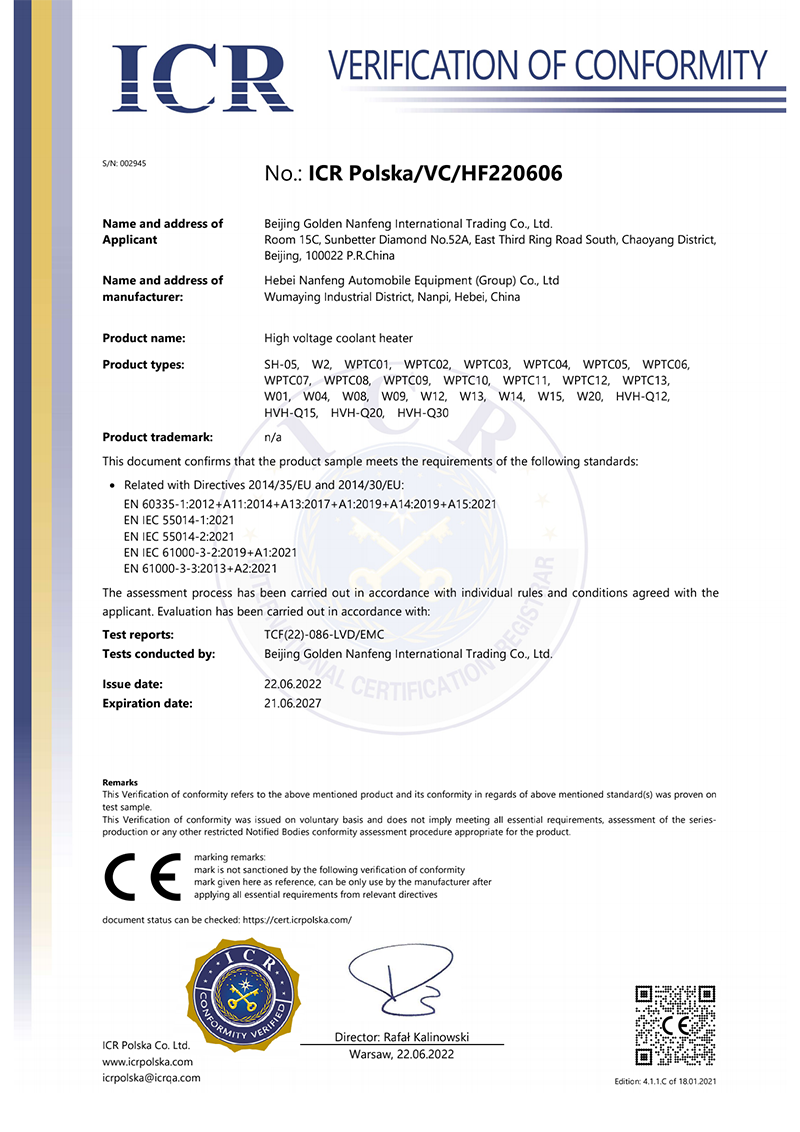
Company Profile


Hebei Nanfeng Automobile Equipment (Group) Co., Ltd is a group company with 5 factories, that specially produce parking heaters, heater parts, air conditioner and electric vehicle parts for more than 30 years. We are the leading auto parts manufacturers in China.
Our factory's production units are equipped with high tech machineries, strict quality,control testing devices and a team of professional technicians and engineers endorsing the quality and authenticity of our products.
In 2006, our company has passed ISO/TS16949:2002 quality management system certification. We also bagged the CE certificate and Emark certificate making us among the only few companies in the world acquiring such high level certifications.
Currently being the largest stakeholders in China, we hold a domestic market share of 40% and then we export them around the globe particularly in Asia, Europe and Americas.
Meeting the standards and demands of our customers have always been our top priority. It always encourages our experts to continuously brain storm, innovate, design and manufacture new products, impeccably suitable for the Chinese market and our customers from every nook of the world.
FAQ
1. What is an EV high-voltage heater in automotive technology?
The electric vehicle high-voltage heater is a heating system specially designed for electric vehicles to provide warmth and comfort to passengers in cold weather. It operates using the vehicle's high-voltage electrical system and does not rely on the internal combustion engine for heating.
2. How does the electric vehicle high-voltage heater work?
Electric vehicle high-voltage heaters work by using electricity from the vehicle's battery to power a heating element, which then heats the air circulating inside the vehicle. The system is designed to efficiently and effectively deliver fast and consistent heat without the need for a traditional internal combustion engine.
3. What are the benefits of using an electric vehicle high-voltage heater?
Using EV high-voltage heaters in electric vehicles offers several advantages, including reduced energy consumption compared to traditional heating systems, faster heat-up times, and the ability to operate without emissions or engine noise. This results in a more comfortable and environmentally friendly driving experience.
4. Are there any safety hazards in electric vehicle high-voltage heaters?
EV high-voltage heaters are designed with safety in mind and undergo rigorous testing to ensure their reliability and durability. However, as with any high-voltage electrical component, automotive technicians must handle and repair these systems with care to prevent potential electrical hazards.
5. Can the EV high-voltage heater be retrofitted to existing electric vehicles?
In some cases, EV high-voltage heaters may be compatible with existing EVs and can be installed as an aftermarket accessory. However, it is recommended to consult the vehicle manufacturer or a qualified professional to determine compatibility and installation procedures for your specific vehicle.
6. How does the high-voltage heater of electric vehicles affect the cruising range of electric vehicles?
While electric vehicle high-voltage heaters do drain energy from the vehicle's battery, modern designs are optimized for energy efficiency to minimize the impact on overall driving range. Additionally, using a high-voltage heater reduces reliance on heating the vehicle's main battery, which helps preserve range when driving in cold weather.
7. What maintenance is required for electric vehicle high-voltage heaters?
Like other vehicle components, electric vehicle high-voltage heaters may require periodic inspection and maintenance to ensure proper functionality. This may include checking electrical connections, inspecting heating elements, and verifying the overall performance of the system to resolve any potential issues.
8. Can the EV high-voltage heater be used in conjunction with other heating systems?
In some cases, electric vehicle high-pressure heaters can work with other heating systems, such as heat pumps, to provide full climate control for the vehicle. This approach allows for flexible heat delivery based on driving conditions and temperature preferences.
9. Are there different types of electric vehicle high-voltage heaters available?
Electric vehicle high-voltage heaters are available in a variety of designs and configurations, each tailored to the specific requirements of different electric vehicle models and applications. This may include differences in heating output, energy consumption and integration with the vehicle's overall heating and climate control systems.
10. How does the electric vehicle high-voltage heater contribute to the overall performance of the electric vehicle?
Electric vehicle high-voltage heaters play a vital role in improving the overall comfort and usability of electric vehicles, especially in cold climates. Electric vehicle high-pressure heaters provide efficient and reliable heating without the need for an internal combustion engine, supporting the transition to sustainable and environmentally friendly transport solutions.

